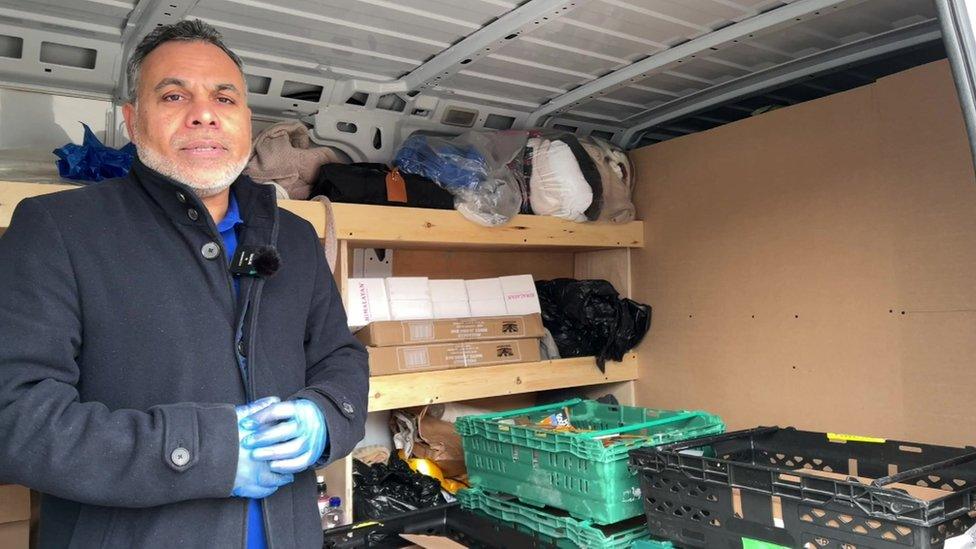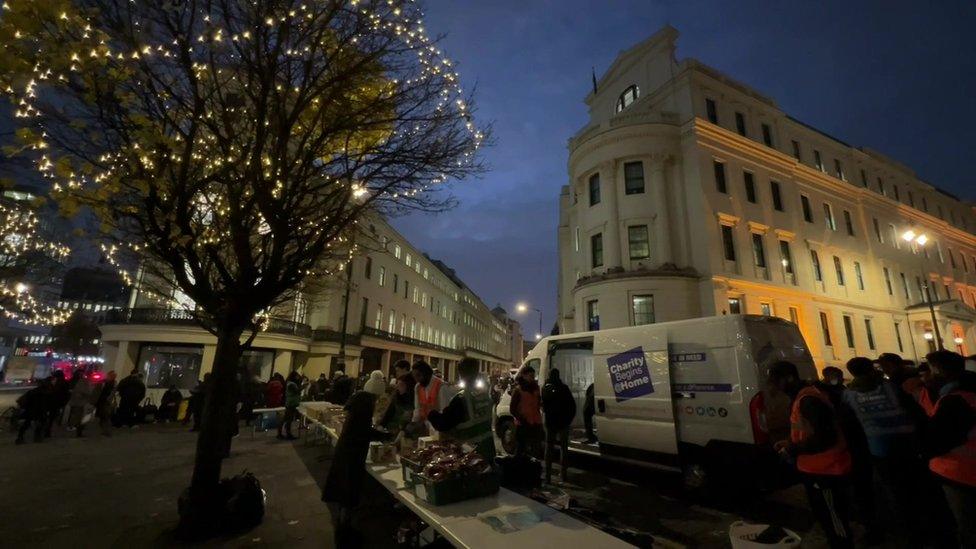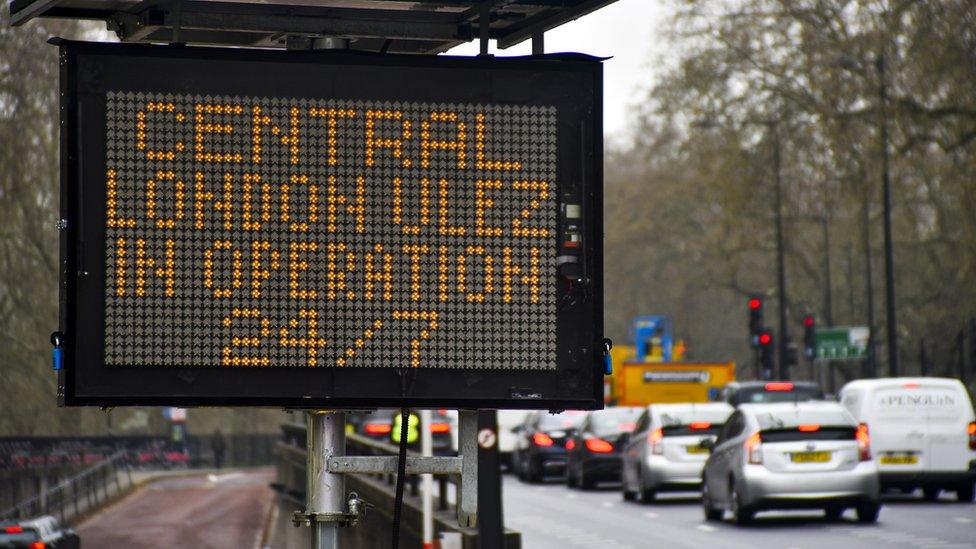ULEZ charge should be scrapped for charities, urges boss
- Published

Saleem Awan branded the charges "frustrating"
The founder of a charity says it can no longer operate unless future ULEZ charges are scrapped for good causes.
Saleem Awan says Charity Begins at Home paid more than £3,000 in Ultra Low Emission Zone (ULEZ) and congestion charge fees last year.
Drivers of older, polluting vehicles will pay £12.50 a day to enter any part of London when ULEZ widens in August.
Transport for London (TfL) says a scrappage scheme worth an extra £110m will be extended in January.
"We are really unhappy because this money could lead to... more people on the streets of London," he said.
Charity Begins at Home collects food from a depot in Park Royal, west London, every Friday and delivers it to the Strand in central London. It has two vans, one of which pays the ULEZ charge.
"It's very frustrating for charities because we cannot afford it and we will have to stop our operations," Mr Awan added.

The charity hands out hot meals on the Strand
A public consultation, external found 80% of people in the affected areas were opposed the expansion of the zone.
Christina Calderato, TfL's director of transport strategy and policy, said that "high levels of traffic and pollution disproportionally affect the most vulnerable".
She said: "London's dirty air results in thousands of premature deaths every year. It increases the risk of asthma, dementia and cancer and stunts the development of children's lungs.
"That's why the expansion of ULEZ is so important, with people's lives and health at stake."
A spokesperson for the mayor of London said: "The mayor has been clear that it was not an easy decision to expand the ULEZ London-wide but a necessary one to reduce the capital's toxic air pollution, tackle the climate emergency and cut congestion in our city.
"Expanding the ULEZ London-wide will strike the best balance between maximising the health and environmental benefits for Londoners while minimising the cost to drivers."

Follow BBC London on Facebook, external, Twitter , externaland Instagram, external. Send your story ideas to hellobbclondon@bbc.co.uk, external
Related topics
- Published25 November 2022
